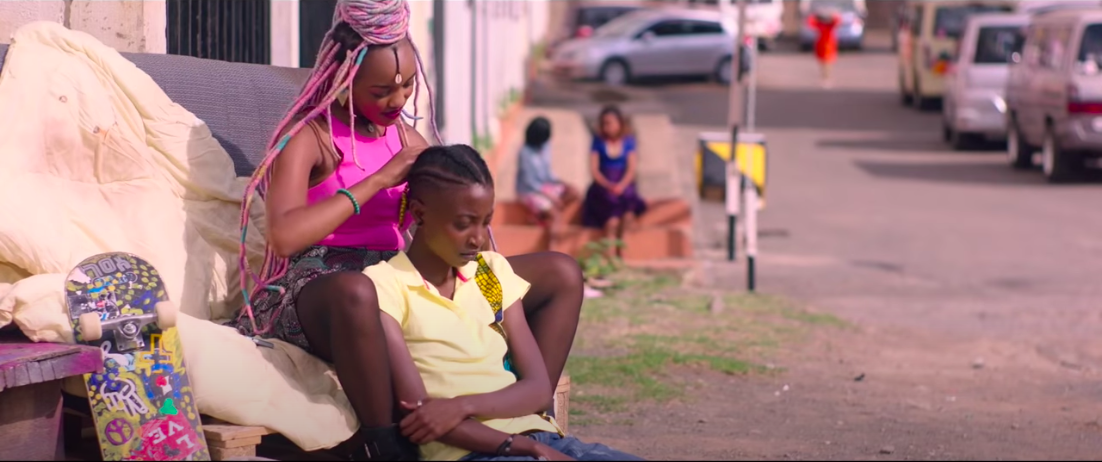Rafiki tells the story of two women, Kena and Ziki, who live on a housing estate in Nairobi, Kenya (YouTube/IndieWire)
A high court in Kenya has refused to lift a ban on Rafiki, an award-winning lesbian romance film, on the grounds that it would encourage “moral decay”.
Rafiki — which means friend in Kiswahili — is a story of the romance that grows between two young women in Nairobi amid family and political pressures around LGBT+ rights.
The movie was banned by the Kenya Film Classification Board in April 2018 “due to its homosexual theme and clear intent to promote lesbianism in Kenya contrary to the law”.
Sex between men is illegal in Kenya and punishable by 14 years’ imprisonment. Lesbians, bisexuals, transgender and non-binary people are not even recognised in the Kenyan Constitution and are frequent victims of discrimination.
Despite the initial chilly reception the film was a major success outside of Kenya and became the first ever Kenyan movie to premiere at the Cannes Film Festival.
Following its international acclaim the film’s director, Wanuri Kahiu, sued the Kenyan government to temporarily lift the ban, allowing the movie to be screened in Kenya so it would be eligible to compete at the Oscars in the Best Foreign Language Film category.
The government obliged and allowed the film to be screened for seven days. The tickets instantly sold out in Nairobi, but the ban was quickly reinstated.
Determined to gain a wider audience in her home country, Kahiu appealed against the ban, arguing it was against freedom of expression which is enshrined in Kenya’s constitution.

But on Wednesday (April 29) the constitutional court ruled to uphold the censorship as it “does not in any way violate artistic freedom of expression, but instead protect[s] the society from moral decay”.
“We are disappointed of course. But I strongly believe in the constitution and we are not going to give up,” Kahiu told the Thomson Reuters Foundation.
“I think it is very important for us to define what freedom of expression means in Kenya as per our constitution. We are going to appeal. The ruling today is not a true reflection of what the constitution says.”
She said the fight to get the movie shown in Kenya isn’t over and added that she’s prepared to take the case to the court of appeals and the Supreme Court if necessary.
